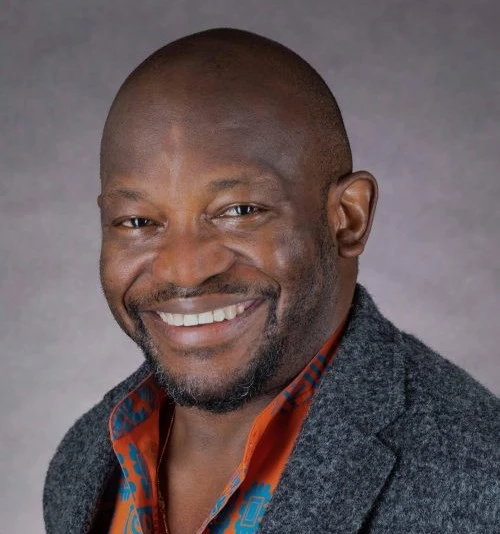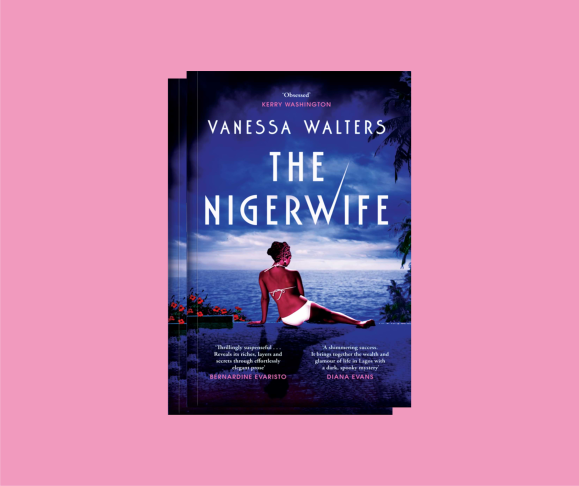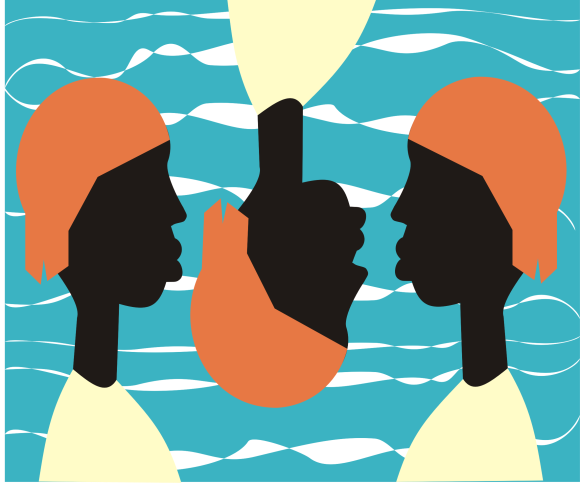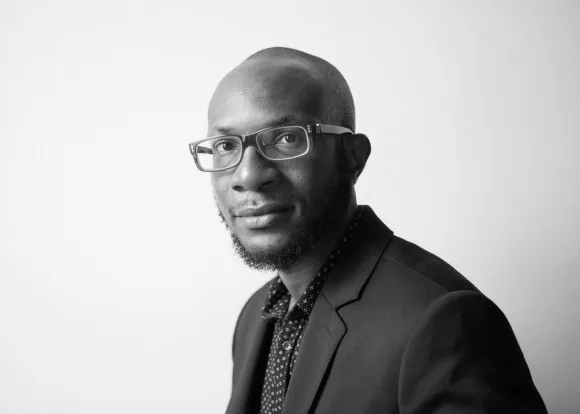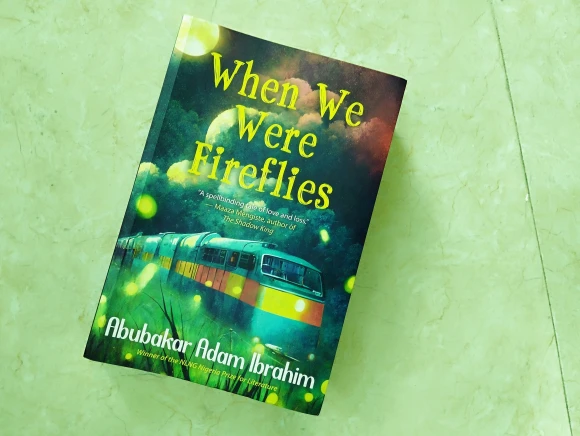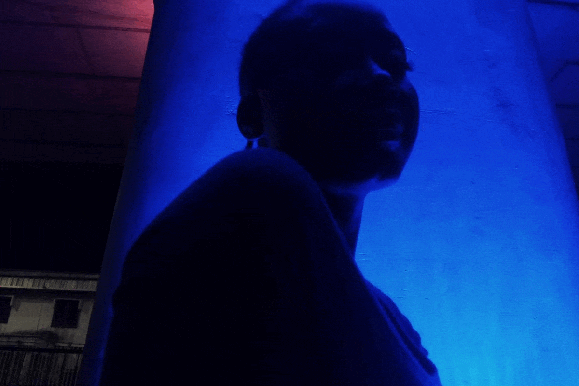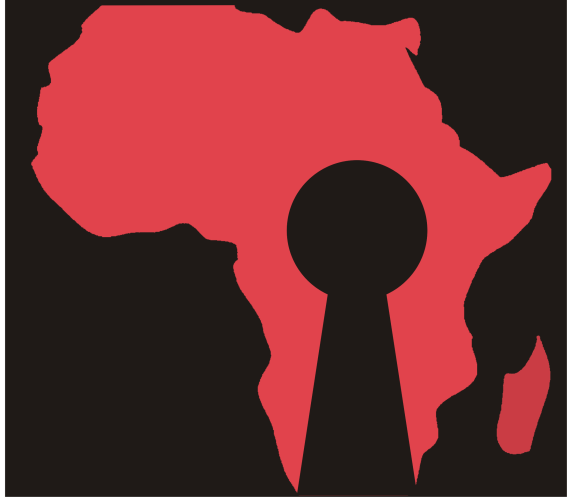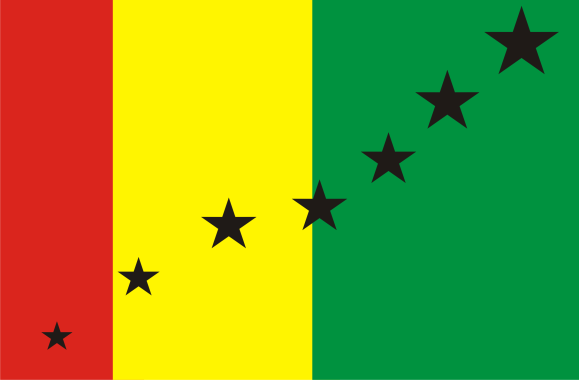♦
Ike Anya recalls in a very madeleine anecdote the first time he thought of becoming a doctor. He is five years old and sitting in the dirt in front of his parent’s compound in the staff quarters of UNN. In quaintly vivid recollection, he writes, “I am somewhere between the lawn dotted with the flower bushes my mother lovingly tends, and the hedge separating our house from the road.” He plays with a toy stethoscope from a box of doctor set, a gift, waiting for an aunt to resume their reading lessons, when there are sudden footsteps in the kitchen. He and his brother are jolted and hurry to catch what is brewing.
His aunts are panting; they had been asked to return home as there had been a coup. As the family gather by the radio, he learns that someone known as “Gor-wan” has been overthrown, and his five-year-old, befuddled mind marvels at the word overthrow, “lifted up in a chair and thrown over something…?” He didn’t know—the pattern set for him in that childhood experience—that such movements from tenderness to tension, calm to upheaval, was a presaged induction to the tempo of the work life of a doctor.
The first pages of this memoir, however, begin in 1991, 16 years after the coup ousting Gen. Yakubu Gowon, and Ike Anya is in the middle of medical school feverishly waiting for the results of the so-dreaded 2nd MB exams, “a gruelling ritual,” which determines if a medical student crosses into the remaining three years of clinical study. Failing it once is okay, but a second failure means dismissal. He recalls being shown “students from previous years, reduced to nervous wrecks” by this same exam. He passes and celebrates with careless abandon; one of his friends has torn their shirt, revealing torso, screaming, as Ike; they run towards each other, leap into an embrace, clasp, and fall on the ground, rolling in the grass, over and over. “The wait is over: we will doctors one day.”
In short, wonderful chapters written like flashcards, four to five pages long, we encounter this dynamic of the journey to success—the 2nd MB exams, a kind of recurring symbolism—and the process to reach that success of becoming a doctor. But we are not sunk into a tour-de-force, should we fear: what memoir can a doctor really write without burdening us with medical nonsense? After all, medicine is a field with an already misconceived idea of mysticism and aloofness to ordinary humans, very arcane. But as the book’s subtitle explains, “Becoming a Doctor in 1900s Nigeria,” Ike Anya writes a story that is so Nigerian at heart, chronicling anecdotes and scenarios that are all-too-familiar and resonant.
This was a medical student who not only read his medical textbooks in school but also devoured all the novels and collections he could get from the British Council Library in the state. His writing, perhaps like a surgeon’s, thankfully his profession, is precise and masterful, intimidating even—no doubt, writers have always envied why medical doctors become the better writers—so that his storytelling is so alive. Because so much craft goes into this book in its many carefully-sculpted details and memorabilia, it is informative enough for a reader to claim having studied or gone to medical school simply by reading this memoir. The effort in transporting our sensibilities to places, the past, or to tastes, feelings and sensations, or synaesthesia, is not made, but made at the same time, because the effort is not obvious, but seamless. Also, the charm could be that the glimpse the memoir gives us into the cultic profession of medicine is what draws us in.
We might read hard, long words like “sphygmomanometer” or the familiar “cerebrospinal fluid,” but not enough to strangulate us. Ike Anya is in solidarity with his readers; in his fourth year he amuses himself with the pronunciation of the words “caseation” and “cavitation” from a morbid anatomy textbook, saying “I roll the words round in my mouth, savouring their new sounds, but the dry heat of the harmattan afternoon is enervating and I drift off to sleep.” Unlike the poet Dami Ajayi who abandons readers in his poems in Clinical Blues, with his many medical references.
Like most literature referencing Nigerian history, the memoir is often interrupted by the spectre of military dictatorships and coups. The radio and that dreadful announcement. We come across then head-of-state Gen. Ibrahim Babangida’s antics, June 12, the assassination of Kudirat Abiola, and student union demonstrations. Ike Anya recalls the Abacha coup and hearing the broadcast, of which the dictator’s closing words were “Any attempt to test our will, will be decisively dealt with.” The book demonstrates, in some way, through Ike’s journey and trials of becoming a doctor, Nigeria’s own becoming in contrast to his medical student days. While the nation was failing, young men and women were fighting for its health, literally—oh, health sector!—without any thanks, often in very lonely and vulnerable moments, as Small by Small reveals, inviting us into an aspect of Nigerian life hidden but familiar in some way, of the secluded and oft-lonely journey of professional students.
So when Ike fails Paediatrics and has to re-sit, he becomes demoralised about the struggle or the point of his suffering through school and study. He becomes sullen with righteous anger as exuberant youthfulness and an intelligent mind demand, and almost self-sabotages. Though, he still has to learn and accept the hard way that the insistence of excellence in medicine is non-negotiable, a non-upturnable touchstone, which a doctor mustn’t just embody but be, and learns, we learn too, the virtues of being steadfast. The second time, he passes Paediatrics and all required courses. Ike Anya is a doctor.
During his house job, an equivalent of internship, at Lagos University Teaching Hospital, there’s almost no rest. 12 intensive months of being on call, practising under senior doctors and consultants, there’s almost no rest. On page 256 we read, “Our days are long and busy, each blending into another in a swirl of repeated activities. We work hard, often spending most of the day and then staying up all night replacing intravenous lines that have ‘tissued’; giving intravenous injections; or responding to the nurses’ summons to review a patient running a temperature, or another who has taken a sudden turn for the worse.”
The medical profession is often paradoxical in terms of labour. It’s a haloed profession but appears doctors are always working in a manner an outsider would prefer not to (not as if capitalism allows us any rest). This profession often appears elitist, and menial, in its many repetitions of procedures. Why does anyone want to be a doctor? It’s a paradox: we ultimately need them.
Ike Anya is also a man of nightlife and the bottle. More than often the word “beer” appears in our memoir. Surely, a working man needs to cool off. There’s richness in Small by Small in no small measures. The book brings daylight. It is alive. With its madeleine character and entirely written in a sleight of Present Tense, it refreshes and presents the past in a sort of memory of now:
“It is late at night, and the low-slung buildings of the hospital are enveloped in the eerie stillness that sometimes descends on it. Most patients are asleep, or at least settled for the night. The corridors have settled into a quiet emptiness. An hour or two before, they hummed with trundling meal carts carrying supper to patients, porters wheeling patients to and from theatre, nurses going to pharmacy, junior doctors chasing laboratory results and X-rays. Now, only the footsteps of an occasional lone junior nurse or doctor hurrying on a last-minute errand for an urgent prescription or blood sample disturbs the peace.”
We read the story of a medical student with a reputation for being shifty, who rumours spread about him already practising in some local hospitals; his name is Anwu Anwu, the immortal. It is his third attempt to pass Surgery, failure means one more last attempt or dismissal, eight years of his life in the bin. Although he’d been an evasive student, Ike writes that Anwu Anwu had been steadfast that semester, “prepared hard, turning up at every clinic, every tutorial, spending hours in theatre observing operations.” But what happens on his exam day? He meets a knavish external examiner, a Dr. Obi, who asks him, “Can you describe to me in detail, the blood supply to the little finger?” What could be so Nigerian and yet very cinematic at the same time? This is a memoir deserving of a biopic.
The culture of autobiography and memoir writing, excepting a few Nigerian writers (these days mostly writers abroad) has been, for a while now, a retirement gift of men of the armed offices who sadly, mostly, self-publish and hardly make it to large readership: one wonders what beautiful Nigerian stories and histories are lost in such mountains of biodegradable waste. Ike Anya’s Small by Small has made it out of that obscurity and re-establishes the memoir, fated for some time now to the backyard of Nigeria’s literary scene, as not just secondary; that while we are preferential to and celebrate fiction, which is an imitation of life, the memoir is even better—a celebration of life.♦
____________________________
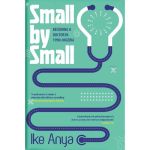
Read more book reviews
Carl Terver is the author of Glory to the Sky (forthcoming July 2024). He writes on film, literature, and music, and is the founding editor of Afapinen. 𝕏

